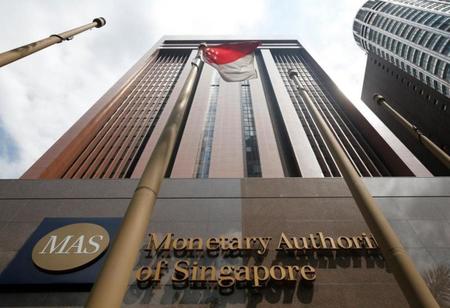
Singapore Constricts Monetary Policy as Price Inflates

 Singapore's central bank unpredictably stiffened its monetary policy, delivering its first such move in three years, amid mounting cost pressures caused by supply constraints and a recovery in the global economy. The city-state links with a group of economies globally that have begun to dial back heavy pandemic-era monetary stimulus, as the threat of inflation outweighs the growth risks posed by the coronavirus.
Singapore's central bank unpredictably stiffened its monetary policy, delivering its first such move in three years, amid mounting cost pressures caused by supply constraints and a recovery in the global economy. The city-state links with a group of economies globally that have begun to dial back heavy pandemic-era monetary stimulus, as the threat of inflation outweighs the growth risks posed by the coronavirus.
The central bank, which manages its policy through exchange rate settings, said it would raise slightly the slope of its currency policy band, from zero percent previously. Irvin Seah, a senior economist at DBS, said the move was a result of growth and inflation emerging out of a recessionary situation.
"This is a recalibration to be in line with economic fundamentals and I don't foresee any further tightening unless we see upside risk in growth and inflation," he said. Singapore, recovering from last year's record recession brought on by the COVID-19 pandemic, is beginning to re-open its borders with 84% of its population fully vaccinated against the virus. The economy is expected to grow 6–7% this year.
Only two financial institutions, including DBS, had expected a tightening, with 11 others predicting the Monetary Authority of Singapore (MAS) would stay on hold, in a Reuters poll. Instead of using interest rates, the MAS manages monetary policy by letting the Singapore dollar rise or fall against the currencies of its main trading partners within an undisclosed band.
It adjusts its policy via three levers: the slope, mid-point and width of the policy band, known as the Nominal Effective Exchange Rate, or S$NEER. The width of the band and the level at which it is centred will be unchanged, the MAS said.
In a statement, the MAS said, "This appreciation path for the S$NEER policy band will ensure price stability over the medium term while recognising the risks to the economic recover. The central bank expects growth to return to near its potential next year, notwithstanding shocks like a resurgence in the virus or setback in economic reopening.
Bank of Singapore analyst Moh Siong Sim said the shift was a "hawkish surprise," but modest enough to keep a lid on the currency. "It's starting baby steps towards policy normalisation, but makes sense given rising global inflation backdrop," he said.
The MAS expects growth in the bellwether Singapore economy to remain above trend in the quarters ahead. "At the same time, external and domestic cost pressures are accumulating, reflecting both normalising demand as well as tight supply conditions," it said.
Preliminary data on Thursday showed Singapore's economy grew 6.5% in the third quarter, broadly in line with economists' forecasts. The MAS said GDP growth should register a slower but still-above trend pace in 2022.
"I think there's a 50-50 chance MAS will also tighten in April because they are doing a very slow and gradual process of tightening, so they may tighten slightly again," said Jeff Ng, an economist at HL Bank.